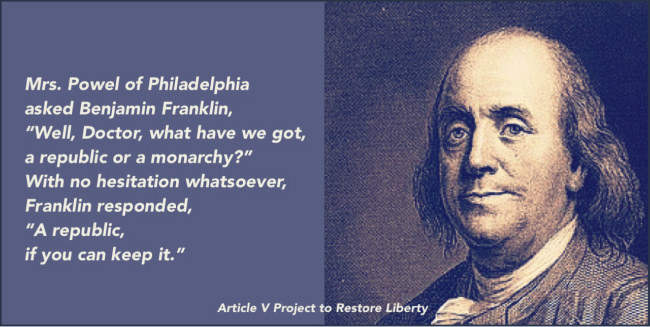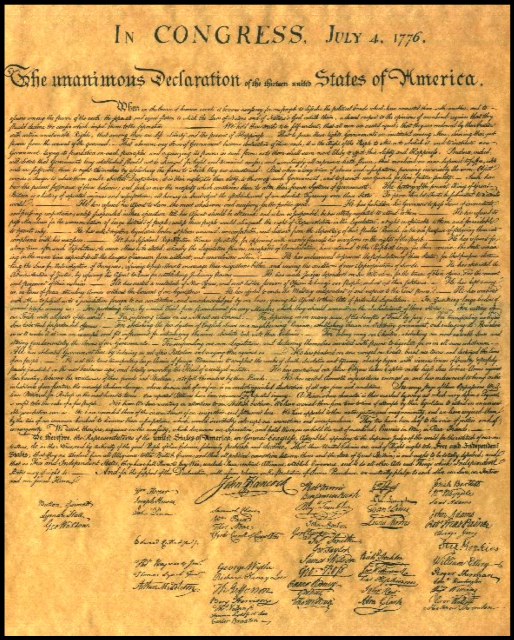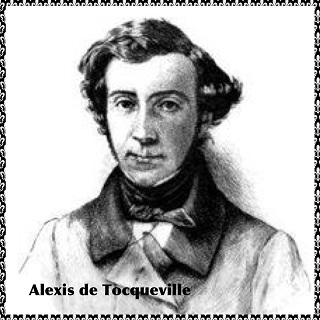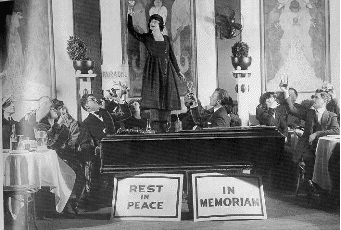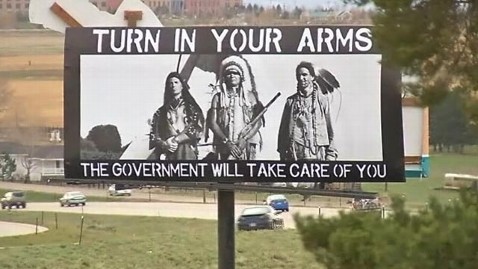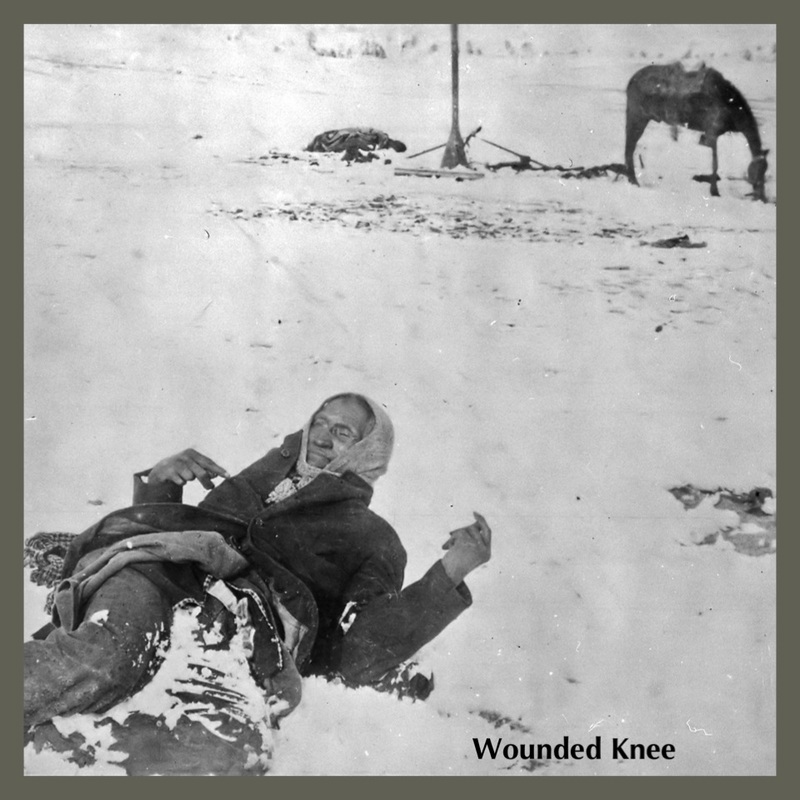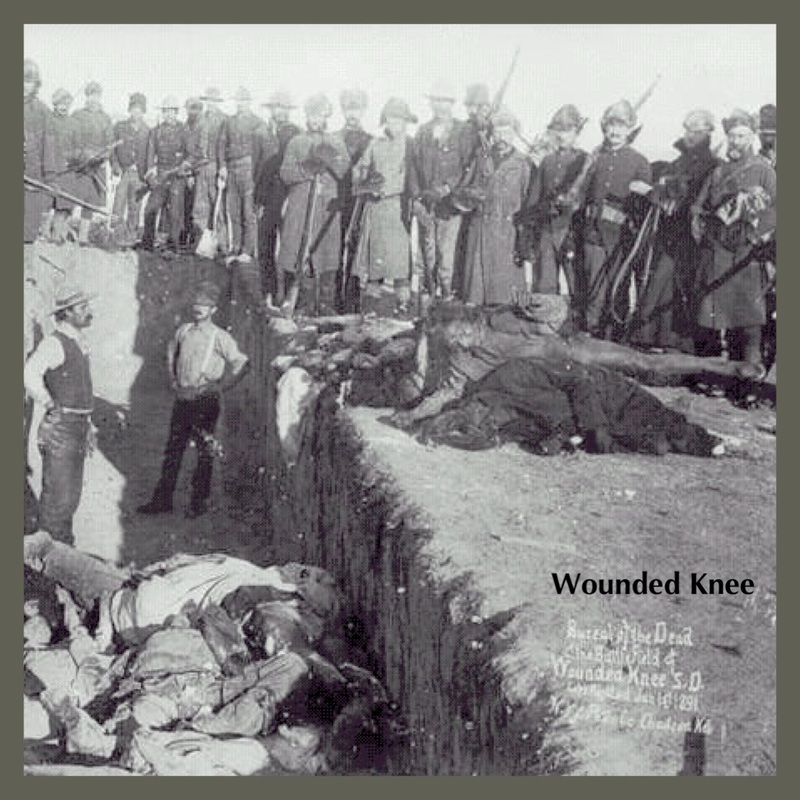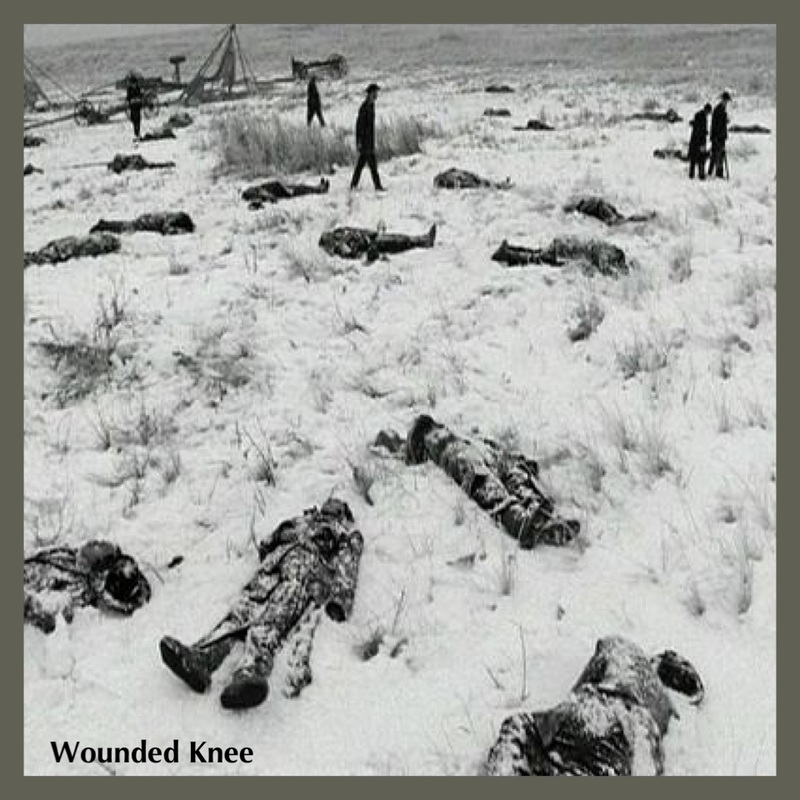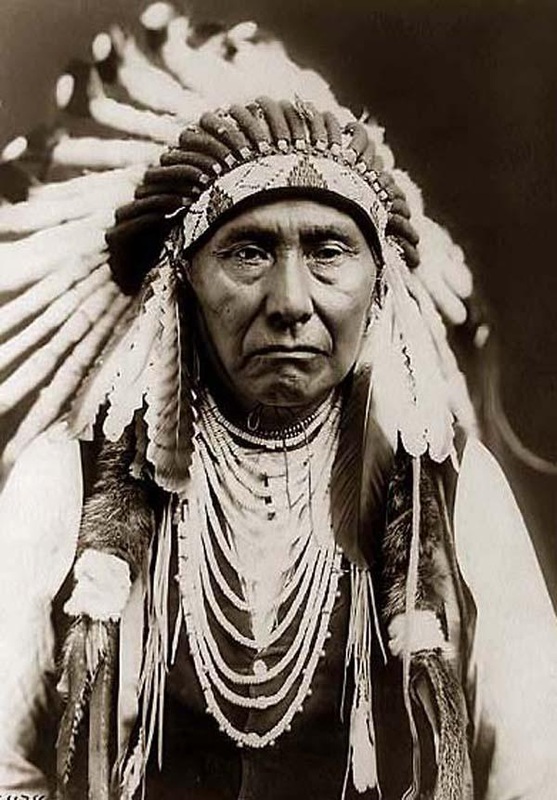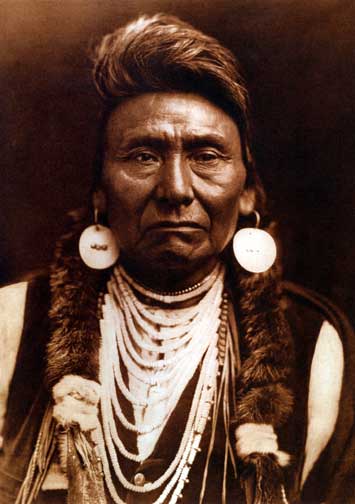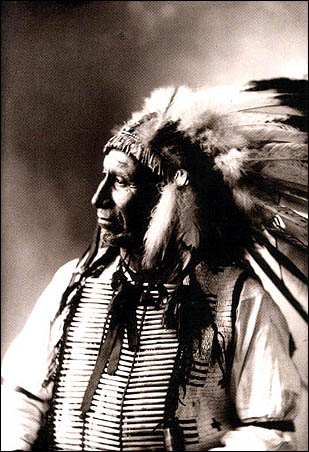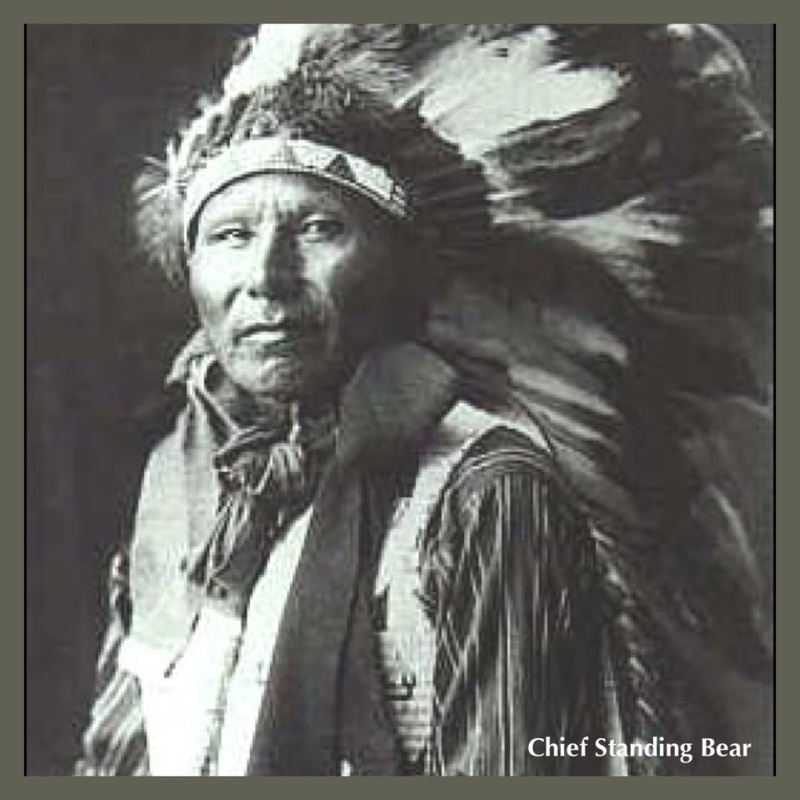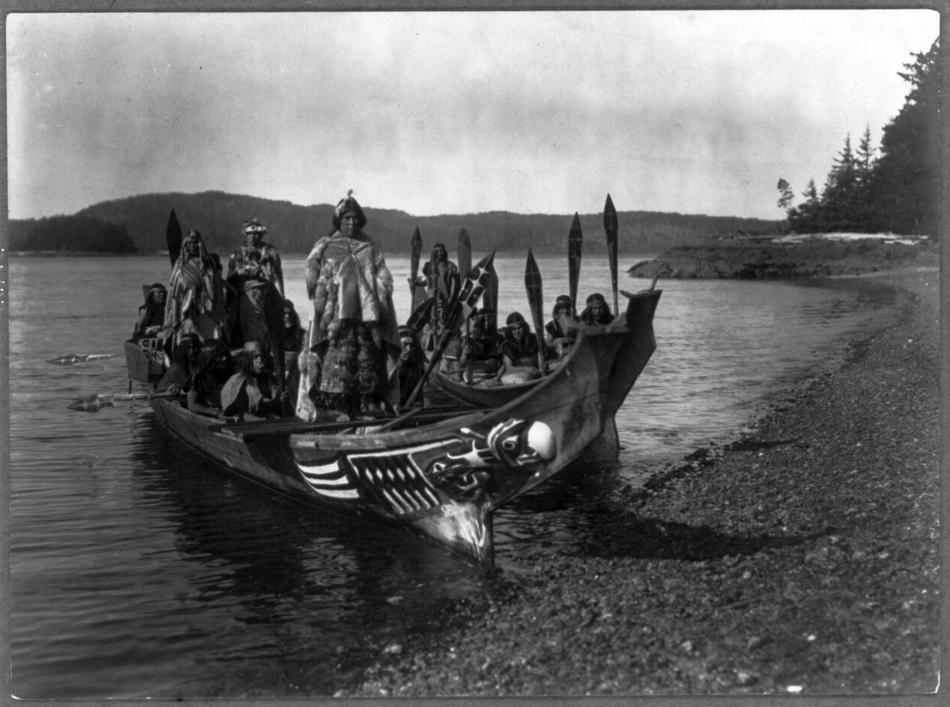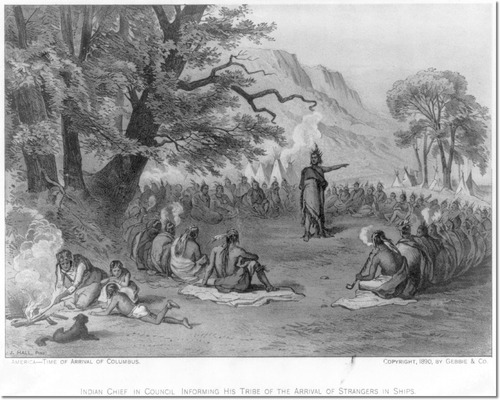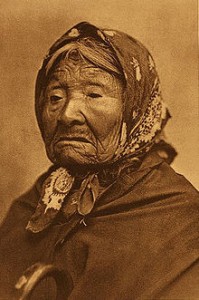New Views OF THE Constitution OF THE United States
by JOHN TAYLOR of Caroline
DISTRICT OF COLUMBIA, to wit:
BE IT REMEMBERED, That on the nineteenth day of November, in the year of our Lord one thousand eight hundred and twenty-three, and of the Independence of the United States of America, the forty-eighth, JOHN TAYLOR, of the said District, hath deposited in the office of the Clerk of the District Court for the District of Columbia, the tide of a book, the right whereof he claims as proprietor in the words following, to wit:
"New Views of the Constitution of the United States. By John Taylor, of Caroline, Virginia."
In conformity to the act of the Congress of the United States, entitled "An Act for the encouragement of learning, by securing the copies of maps, charts and books, to the authors and proprietors of such copies during the times therein mentioned," and also to the act, entitled "An Act supplementary to an act, entitled "An Act for the encouragement of learning, by securing the copies of maps, charts, and books, to the authors and proprietors of such copies during the times therein mentioned," and extending the benefits thereof to the arts of designing, engraving, and etching historical and other prints."
IN TESTIMONY WHEREOF, I have hereunto set my hand, and affixed the public seal of my office, the day and year aforesaid.
EDMUND I. LEE,
Clerk of the District Court for the District of Columbia.
CONTENTS
Preface
[Introduction, by Jon Roland]
1 The Meaning of Certain Primary Words
2 The Journal of the Convention
3 The Subject Continued
4 The Subject Continued
5 The Subject Concluded
6 Yates's Notes
7 The Subject Concluded
8 The Federalist
9 The Subject Continued
10 The Subject Continued
11 The Subject Continued
12 The Subject Concluded
13 Sovereignty
14 One of the People
15 Other Consolidating Doctrines
16 A Federal and National Form of Government Compared
17 Construction
PREFACE
THAT many eminent and respectable men have ever preferred, and ever will prefer, a consolidated national government to our federal system; that the constitution, under the influence of this predilection, has been erroneously construed; that these constructions are rapidly advancing towards their end, whether it shall be consolidation or disunion; that they will become a source of excessive geographical discord; and that the happiness and prosperity of the United States will be greater under a federal than under a national government, in any form, are the opinions which have suggested the following treatise. If the survey taken of these subjects is not proportioned to their importance, it yet may not be devoid of novelty, nor wholly ineffectual towards attracting more publick attention towards a question involving a mass of consequences either very good or very bad.
Read more at: by JOHN TAYLOR of Caroline
DISTRICT OF COLUMBIA, to wit:
BE IT REMEMBERED, That on the nineteenth day of November, in the year of our Lord one thousand eight hundred and twenty-three, and of the Independence of the United States of America, the forty-eighth, JOHN TAYLOR, of the said District, hath deposited in the office of the Clerk of the District Court for the District of Columbia, the tide of a book, the right whereof he claims as proprietor in the words following, to wit:
"New Views of the Constitution of the United States. By John Taylor, of Caroline, Virginia."
In conformity to the act of the Congress of the United States, entitled "An Act for the encouragement of learning, by securing the copies of maps, charts and books, to the authors and proprietors of such copies during the times therein mentioned," and also to the act, entitled "An Act supplementary to an act, entitled "An Act for the encouragement of learning, by securing the copies of maps, charts, and books, to the authors and proprietors of such copies during the times therein mentioned," and extending the benefits thereof to the arts of designing, engraving, and etching historical and other prints."
IN TESTIMONY WHEREOF, I have hereunto set my hand, and affixed the public seal of my office, the day and year aforesaid.
EDMUND I. LEE,
Clerk of the District Court for the District of Columbia.
CONTENTS
Preface
[Introduction, by Jon Roland]
1 The Meaning of Certain Primary Words
2 The Journal of the Convention
3 The Subject Continued
4 The Subject Continued
5 The Subject Concluded
6 Yates's Notes
7 The Subject Concluded
8 The Federalist
9 The Subject Continued
10 The Subject Continued
11 The Subject Continued
12 The Subject Concluded
13 Sovereignty
14 One of the People
15 Other Consolidating Doctrines
16 A Federal and National Form of Government Compared
17 Construction
PREFACE
THAT many eminent and respectable men have ever preferred, and ever will prefer, a consolidated national government to our federal system; that the constitution, under the influence of this predilection, has been erroneously construed; that these constructions are rapidly advancing towards their end, whether it shall be consolidation or disunion; that they will become a source of excessive geographical discord; and that the happiness and prosperity of the United States will be greater under a federal than under a national government, in any form, are the opinions which have suggested the following treatise. If the survey taken of these subjects is not proportioned to their importance, it yet may not be devoid of novelty, nor wholly ineffectual towards attracting more publick attention towards a question involving a mass of consequences either very good or very bad.
Read more at: http://www.constitution.org/jt/jtnvc.htm
What Can Be Done with Felonious Members of Congress?
In 1989 when the Exxon oil tanker Valdez ran onto the Prince William Sound's Bligh Reef in Alaska and polluted the waters along 1,000 miles of Alaskan shoreline because its captain was drunk, protestors took to singing a parody of this old children’s song: “What do you do with a drunken sailor, early in the morning? Make him captain of an Exxon tanker.”
The question could be raised similarly about what do you do with a felonious, and perhaps traitorous member of Congress? Well, for the Democrats, you place them in positions of leadership (at least until the member’s actions become known widespread). By now I’m certain most, if not all, of those reading this have heard the reports of how Democratic Representative and former head of the Democratic National Committee, Debbie Wasserman Schultz, hired Muslim individuals to be her IT technicians. These technicians had access to hers and a number of other Democratic Representatives’ computers and who knows how much sensitive data in our government files. These same individuals defrauded us taxpayers and one was even caught trying to flee the country. We now learn that Congresswoman Schultz continued payments to him and some of the others after they had been blocked from having access to the House computer network and could not perform the work for which they supposed had been engaged.
So what can be done with members of Congress who act so egregiously? There’s the standard answer – vote them out of office. Yet as someone who twice attempted in the primaries to oust a long, long-term Congressman , that is seldom done as they have too much money, influence and too many connections. However, there is another way, but it takes more political courage than those sitting in Congress seldom exhibit.
Article I, Section 5, Clause 2 of the Constitution contains this remedy:
“Each House may determine the Rules of its Proceedings, punish its Members for disorderly Behaviour, and, with the Concurrence of two thirds, expel a member.”
I would say that Congresswoman Schultz’s actions certainly meet that rather low bar of “disorderly Behaviour” wouldn’t you? There should be an immediate appointment of a special prosecutor to investigate her actions, and when all is brought forth, the other members of Congress should expel her. But we all know that will never happen because far too many of those in Congress could also fall into similar condemnation. After all, there is that long-standing principle of “Honor among thieves” in play with members of our Congress. Would that we’d just have a smattering of pure, plain old “honor”.
Pocket Catechism On The Constitution : http://29dvttiq6ry1heyds3zfg0uf.wpengine.netdna-cdn.com/wp-content/uploads/2015/07/Pocket-Catechism-on-the-Constitution.pdf
What the executive office was meant to be and how to restore it:
http://info.hillsdale.edu/the-presidency-and-the-constitution?utm_source=prospecting&utm_medium=email&utm_campaign=presidency&utm_content=AE_DWire82716
The Constitution Society: http://constitution.org/
Free pocket constitution: http://www.constitutionbooklet.com/
Read this as it defines the meaning of the words in the time of the Founders - http://www.heritage.org/constitution/...
Article IV, Section 2, Clause 1: Privileges and Immunities ClauseThis is an essay about the Privileges and…
HERITAGE.ORG
The Constitution Explained http://www.senate.gov/civics/constitution_item/constitution.htm
The Charters of Freedom Q&A on the Constitution http://www.archives.gov/exhibits/charters/constitution_q_and_a.html
The Constitution and the Founding http://www.wwnorton.com/college/polisci/american-politics-today2/full/ch/02/outline.aspx
************************************
Just What is a "Natural Born Citizen"?
There is no legal foundation nor is there a Constitutional definition of Natural Born and this is why the many arguments.
All foundation support the legal concepts.
NATURAL BORN CITIZEN
A phrase denoting one of the requirements for becoming President or Vice-President of the United States. Anyone born after the adoption of the U.S. Constitution in 1787 must be a "natural born Citizen" of the United States to constitutionally fill the office of President or Vice-President. See U.S. Const. art. II, § 1; id. at amend. XII.
Some debate exists as to the meaning of this phrase. Consensus exists that anyone born on U.S. soil is a "natural born Citizen." One may also be a "natural born Citizen" if, despite a birth on foreign soil, U.S. citizenship immediately passes from the person's parents.
NOTE:
Here is the most definitive and open discussion of scholarly work I have found on the issue of natural born citizen - he even shows in detail why Vattel's translation of the 1758 French to English
The problem with that argument, however, is that the English translation of the 1758 edition did not use the term “natural born Citizen.” That term did not appear until the 1797 edition, a decade after the Constitution was ratified.
All of his research is here and if you read it like I have it leads to no single absolute answer. In my opinion the questions will never be solved to the satisfaction of all citizens and scholars.
http://legalinsurrection.com/2013/09/natural-born-citizens-marco-rubio-bobby-jindal-ted-cruz/
The facts have been laid upon the table for all to read and ponder - the decision is yours and yours alone. To blindly repeat talking points of of one Constitutional scholar is silliness as evidence that is rooted to a firm FOUNDATION is required to present a viable provable conclusion.
Visit this library and you will find much more and it is free. Learn and read all sides of the issues we all discuss. Facts not emotions will carry the day.
http://www.law.cornell.edu/wex/natural_born_citizen
*************************************
A View of the Constitution PDF Format http://api.ning.com/files/z-Cs3-aWqh9ZYaHTZeap9uFwF1hjJaNEz*nvrmmWlxm61kcoMpJaZw9y7ICWuPOlTjLrZy4QPIBLwd9VfzFipWX4LfL4eZHb/A_view_of_the_Constitution_of_the_United.pdf
http://www.constitution.org/wr/rawle-00.htm
Restoring Federalism http://www.restorefederalism.org/
History Learning Site - http://www.historylearningsite.co.uk/bill_of_rights.htm
The American Ideal of 1776
The Twelve Basic American Principles
http://lexrex.com/enlightened/AmericanIdeal/
Limited Government in Relation to The Constitution's Treaty Clause (a) Treaties
http://www.lexrex.com/enlightened/AmericanIdeal/aspects/limited_gov_treaty.htm
State Rights
Treaties Do Not Supersede the Constitution
http://www.sweetliberty.org/issues/staterights/treaties.htm
The National Anthem
Every American should see this....
What do you know about the background of The Star Spangled Banner?
https://www.youtube.com/embed/YaxGNQE5ZLA
Read this as it defines the meaning of the words in the time of the Founders - http://www.heritage.org/constitution/...
The Right to Keep and Bear Arms under the Second and Fourteenth Amendments
The Framers' Intent and Supreme Court Jurisprudence
by Stephen P. Halbrook http://www.constitution.org/2ll/schol/jfp5ch01.htm
97th Congress
2d Session COMMITTEE PRINT
THE RIGHT TO KEEP AND BEAR ARMS
———--
R E P O R T OF THE SUBCOMMITTEE ON THE CONSTITUTION OF THE
COMMITTEE ON THE JUDICIARY
UNITED STATES SENATE
NINETY-SEVENTH CONGRESS
SECOND SESSION http://www.constitution.org/2ll/2ndschol/87senrpt.pdf
by Stephen P. Halbrook http://www.constitution.org/2ll/schol/jfp5ch01.htm
97th Congress
2d Session COMMITTEE PRINT
THE RIGHT TO KEEP AND BEAR ARMS
———--
R E P O R T OF THE SUBCOMMITTEE ON THE CONSTITUTION OF THE
COMMITTEE ON THE JUDICIARY
UNITED STATES SENATE
NINETY-SEVENTH CONGRESS
SECOND SESSION http://www.constitution.org/2ll/2ndschol/87senrpt.pdf
|
The above button takes you to an Archive of
Alexander's Columns - Great Site! |
Link to the Constitution of the United States of America above.
|
We Could Learn From the American Indians
|
Other Important Information on the U. S. Constitution
AN OUTLINE OF THE CONSTITUTION OF THE UNITED STATES
PREAMBLE
ARTICLE I LEGISLATIVE DEPARTMENT
Sect. 1. Legislative Power: the Congress
Sect. 2. House of Representatives
Sect. 3. Senate
Sect. 4. Elections and Meetings
Sect. 5. Legislative Proceedings
Sect. 6. Compensation, Immunities, and Disabilities
Sect. 7. Revenue Bills and Presidential Veto
Sect. 8. Powers of Congress
Sect. 9. Powers Denied to Congress
Sect.10. Powers Denied to the States
ARTICLE II EXECUTIVE DEPARTMENT
Sect. 1. Executive Power-The President (term, election, qualification, compensation, oath)
Sect. 2. Presidential Powers and Duties
Sect. 3. Presidential Powers and Duties
Sect.4. Impeachment
ARTICLE III JUDICIAL DEPARTMENT
Sect. 1. Judicial Power, Courts-Terms of Office
Sect. 2. Jurisdiction
Sect 3. Treason
ARTICLE IV RELATIONS AMONG THE STATES
Sect. 1. Full Faith and Credit
Sect. 2. Privileges and Immunities of Citizens
Sect. 3. New States and Territories
Sect. 4. Protections Afforded to the States by the Nation
ARTICLE V PROVISIONS FOR AMENDMENTS
ARTICLE VI PUBLIC DEBT-SUPREMACY OF NATIONAL LAW-OATH
Sect. 1. Validity of Debts
Sect. 2. Supremacy of National Law
Sect. 3. Oaths of Office
ARTICLE VII RATIFICATION OF THE CONSTITUTION
AMENDMENTS 1-10 THE BILL OF RIGHTS
1. FREEDOM OF RELIGION, SPEECH, PRESS, ASSEMBLY, AND PETITION
2. RIGHT TO KEEP AND BEAR ARMS
3. LODGING OF TROOPS IN PRIVATE HOMES
4. SEARCH, SEIZURE, AND WARRANTS
5. CRIMINAL PROCEEDINGS, DUE PROCESS, EMINENT DOMAIN
6. CRIMINAL PROCEEDINGS
7. JURY TRIALS IN CIVIL CASES
8. BAIL; CRUEL AND UNUSUAL PUNISHMENT
9. UNENUMERATED RIGHTS
10. POWERS RESERVED TO THE STATES
ALL LANGUAGE CONTAINED ABOVE IS ORIGINAL TO THE FRAMERS
11. SUITS AGAINST THE STATES
12. ELECTION OF THE PRESIDENT AND VICE-PRESIDENT
13. SLAVERY AND INVOLUNTARY SERVITUDE
Sect 1. Slavery and Involuntary Servitude Prohibited
Sect 2. Power of Congress
14. RIGHTS OF CITIZENS
Sect. 1. Citizenship-Privileges-Immunities-Due Process-Equal Protection
Sect 2. Apportionment of Representation
Sect 3. Disqualification of Offices
Sect 4. Public Debt
Sect 5. Power of Congress
15. RIGHT TO VOTE RACE, COLOR, OR SERVITUDE
Sect. 1. Suffrage Not to be Abridged
Sect. 2. Power of Congress
16. INCOME TAX
17. POPULAR ELECTION OF SENATORS
Sect. 1. Popular Election of Senators
Sect. 2. Senate Vacancies
Sect. 3. Inapplicable to Senators Previously Chosen
18. PROHIBITION OF INTOXICATING LIQUORS (repealed by the 21st)
19. EQUAL SUFFRAGE
Sect. 1. Suffrage Not to be Abridged
Sect. 2. Power of Congress
20. COMMENCEMENT OF TERMS-CONGRESS-DEATH-DISQUALIFICATION
Sect. 1. Terms-President-Vice-President-Congress (note-you can be here a long time)
Sect. 2. Sessions of Congress
Sect. 3. Death or Disqualification of the President-Elect
Sect. 4. Congress to Provide for Succession
Sect. 5. Effective Date
Sect. 6. Time Limit of Ratification
21. REPEAL OF THE 18TH AMENDMENT
Sect. 1. Repeal of Prohibition
Sect. 2. Transportation, Importation of Intoxicating Liquors (now taxed-regulated)
Sect. 3. Time Limit on Ratification
22. PRESIDENTIAL TENURE
Sect. 1. Restrictions on Number of Terms
Sect. 2. Time of Ratification
23. INCLUSION OF THE DISTRICT OF COLOMBIA
Sect. 1. Presidential Electors for District
Sect. 2. Time Limit of Ratification
24. RIGHT TO VOTE IN FEDERAL ELECTIONS-NOT ABRIDGED(TAX PAYMENT)
Sect. 1. Suffrage May Not be Abridged
Sect. 2 Power of Congress
25. PRESIDENTIAL SUCESSION-VACANCY-INABILITY TO PERFORM DUTIES
Sect. 1. Presidential Succession
Sect. 2. Vice-Presidential Vacancy
Sect. 3. Presidential Inability
26. RIGHT TO VOTE-AGE (18)
Sect. 1. Suffrage Not to be Abridged
Sect. 2. Power of Congress
27. CONGRESSIONAL PAY
YOU WILL NOTE THAT FOR OTHER THAN THE 15TH, 19TH, AND 21ST AMENDMENTS; WHICH GRANT INDIVIDUAL RIGHTS....THE COMPOSITE OF ALL THE AMENDMENTS SINCE THE RATIFICATION OF THE 14TH AMENDMENT EXPAND AND FURTHER DEFINE THE POWERS AND INFLUENCE OF THE CENTRAL GOVERNMENT AND THE BRANCHES OF THE FEDERAL GOVERNMENT.
Article V: Amending the Constitution
The issue: What is the process by which the Constitution may be amended? Are there subject matter limitations on amendments? Can courts review the validity of constitutional amendments? What is the effect of amendments on previously ratified constitutional provisions?
Introduction
The United States Constitution is unusually difficult to amend. As spelled out in Article V, the Constitution can be amended in one of two ways. First, amendment can take place by a vote of two-thirds of both the House of Representatives and the Senate followed by a ratification of three-fourths of the various state legislatures (ratification by thirty-eight states would be required to ratify an amendment today). This first method of amendment is the only one used to date. Second, the Constitution might be amended by a Convention called for this purpose by two-thirds of the state legislatures, if the Convention's proposed amendments are later ratified by three-fourths of the state legislatures.
Because any amendment can be blocked by a mere thirteen states withholding approval (in either of their two houses), amendments don't come easy. In fact, only 27 amendments have been ratified since the Constitution became effective, and ten of those ratifications occurred almost immediately--as the Bill of Rights. The very difficulty of amending the Constitution greatly increases the importance of Supreme Court decisions interpreting the Constitution, because reversal of the Court's decision by amendment is unlikely except in cases when the public's disagreement is intense and close to unanimous. Even unpopular Court decisions (such as the Court's protection of flag burning) are likely to stand unless the Court itself changes its collective mind.
The Court has at various times considered the validity of constitutional amendments. Importantly, the Court has considered the method of proposal and ratification, as well as the constitutionality of the subject matter of the amendment, to be a justifiable--and, therefore, not a "political"--question. In the Hawke v Smith (1920), for example, the Court upheld Ohio's ratification of the Eighteenth Amendment over objections that the Ohio Constitution provided for a referendum on the issue by voters that might have overridden the Ohio legislature's ratification of the amendment. The Court concluded that the federal law set for in Article V providing specifically for ratification by state legislatures preempted conflicting state procedures for ratification. Also, in the National Prohibition Cases (1920), the Court generally upheld the validity of the Eighteenth Amendment, rejecting arguments that a prohibition on the distribution and possession of alcohol was a constitutionally impermissible subject matter for a constitutional amendment.
Two more recent cases included in our readings consider the effect of the Twenty-First Amendment repealing the Eighteenth Amendment. In the first case, LaRue v California (1972), the Court concludes that the Twenty-First Amendment qualifies the First Amendment, thus allowing states to regulate expression in establishments that serve alcohol, even when such restrictions might violate the First Amendment if applied elsewhere. In 1996, however, in the 44 Liquormart, Inc. v Rhode Island, the Court disavows its earlier conclusion and makes clear that the Twenty-First Amendment, while it may allow restrictions on alcohol that would otherwise violate the Commerce Clause, in no way qualifies the reach of the First Amendment. The Court therefore concludes that Rhode Island's restrictions on advertising the price of alcohol violate the First Amendment.
In 2005, in Granholm v Heald, the Court held that Section 2 of the 21st Amendment did not give states the power to discriminate against out-of-state wine sellers in ways that would otherwise violate the Commerce Clause. Ruling 5 to 4, the Court struck down a Michigan law banning out-of-state wineries from selling wine to Michigan residents over the Internet. Michigan allowed Michigan wineries to directly ship to consumers, but prohibited non-Michigan wineries from doing the same. The Court noted, however, that the 21st Amendment clearly gave the state the power to ban ALL direct shipments of wine (or other alcoholic beverages) to consumers if it chose to do so. Four dissenters argued that the history of the 21st Amendment proved that it was meant to exclude regulation of alcoholic beverages from the normal prohibitions on state discrimination under the Commerce Clause--however misguided that policy might seem today.
Introduction
The United States Constitution is unusually difficult to amend. As spelled out in Article V, the Constitution can be amended in one of two ways. First, amendment can take place by a vote of two-thirds of both the House of Representatives and the Senate followed by a ratification of three-fourths of the various state legislatures (ratification by thirty-eight states would be required to ratify an amendment today). This first method of amendment is the only one used to date. Second, the Constitution might be amended by a Convention called for this purpose by two-thirds of the state legislatures, if the Convention's proposed amendments are later ratified by three-fourths of the state legislatures.
Because any amendment can be blocked by a mere thirteen states withholding approval (in either of their two houses), amendments don't come easy. In fact, only 27 amendments have been ratified since the Constitution became effective, and ten of those ratifications occurred almost immediately--as the Bill of Rights. The very difficulty of amending the Constitution greatly increases the importance of Supreme Court decisions interpreting the Constitution, because reversal of the Court's decision by amendment is unlikely except in cases when the public's disagreement is intense and close to unanimous. Even unpopular Court decisions (such as the Court's protection of flag burning) are likely to stand unless the Court itself changes its collective mind.
The Court has at various times considered the validity of constitutional amendments. Importantly, the Court has considered the method of proposal and ratification, as well as the constitutionality of the subject matter of the amendment, to be a justifiable--and, therefore, not a "political"--question. In the Hawke v Smith (1920), for example, the Court upheld Ohio's ratification of the Eighteenth Amendment over objections that the Ohio Constitution provided for a referendum on the issue by voters that might have overridden the Ohio legislature's ratification of the amendment. The Court concluded that the federal law set for in Article V providing specifically for ratification by state legislatures preempted conflicting state procedures for ratification. Also, in the National Prohibition Cases (1920), the Court generally upheld the validity of the Eighteenth Amendment, rejecting arguments that a prohibition on the distribution and possession of alcohol was a constitutionally impermissible subject matter for a constitutional amendment.
Two more recent cases included in our readings consider the effect of the Twenty-First Amendment repealing the Eighteenth Amendment. In the first case, LaRue v California (1972), the Court concludes that the Twenty-First Amendment qualifies the First Amendment, thus allowing states to regulate expression in establishments that serve alcohol, even when such restrictions might violate the First Amendment if applied elsewhere. In 1996, however, in the 44 Liquormart, Inc. v Rhode Island, the Court disavows its earlier conclusion and makes clear that the Twenty-First Amendment, while it may allow restrictions on alcohol that would otherwise violate the Commerce Clause, in no way qualifies the reach of the First Amendment. The Court therefore concludes that Rhode Island's restrictions on advertising the price of alcohol violate the First Amendment.
In 2005, in Granholm v Heald, the Court held that Section 2 of the 21st Amendment did not give states the power to discriminate against out-of-state wine sellers in ways that would otherwise violate the Commerce Clause. Ruling 5 to 4, the Court struck down a Michigan law banning out-of-state wineries from selling wine to Michigan residents over the Internet. Michigan allowed Michigan wineries to directly ship to consumers, but prohibited non-Michigan wineries from doing the same. The Court noted, however, that the 21st Amendment clearly gave the state the power to ban ALL direct shipments of wine (or other alcoholic beverages) to consumers if it chose to do so. Four dissenters argued that the history of the 21st Amendment proved that it was meant to exclude regulation of alcoholic beverages from the normal prohibitions on state discrimination under the Commerce Clause--however misguided that policy might seem today.
Questions
1. Is it a good thing that our Constitution is so difficult to amend? Why should a minority be able to frustrate a clear majority's wish to alter the Constitution?
2. Don't the amendment procedures doom many potentially good changes, because one or the other political parties will see itself as adversely affected by a proposed change? For example, won't Republicans forever block Washington D.C. from gaining representation in Congress because any representative elected by D. C. citizens is likely to be a Democrat? Isn't it equally unlikely that the electoral college method of choosing a president will ever be changed?
3. May a state rescind its prior ratification if an amendment has yet to be ratified by three-fourths of the states?
4. Many proposed amendments, such as the Equal Rights Amendment, have limited the period for ratification to seven years? Are such limits a good idea? What if a state ratifies an amendment after the specified period? What if a proposed amendment contained no time limit and was ratified two centuries later (see the 27th Amendment)?
5. The Court has recognized the constitutionality of ratification procedures as a justifiable question. Should the Court consider these issues, or should it leave them to the other branches to work out?
6. Only two provisions in the Constitution have been made unamendable--and the unamendability of one of those, the provision barring restrictions on the importation of slaves, expired in 1808. The only provision now unamendable is the guarantee that each state will have equal suffrage in the Senate. Why do you suppose the framers attached such importance to that provision? What if--despite the provision against changing suffrage in the Senate--, we first repealed the provision prohibiting amendment and that ratified an amendment giving larger states more Senate representation? Are there other impliedly unamendable provisions? Could we abolish the Executive Branch by amendment?
7. What if an amendment (say, an amendment prohibiting abortions) included language prohibiting the amendment from ever being repealed? Should the courts enforce the provision and invalidate an amendment that sought to again permit abortions?
8. The Court, in LaRue and 44 Liquormart, wrestled with the question of whether the Twenty-First Amendment qualified the First Amendment. What do you think is the best answer to that question?
9. Consider the various proposed, but unratified, amendments listed on the U. S. Constitution Online link (below). Which of these proposed amendments do you think should have been adopted?
Link
U. S. Constitution Online: Constitutional Amendments http://www.usconstitution.net/constam.html
This site contains a listing of proposed, but unratified amendments as well as a listing of proposed amendments which have recently been introduced in Congress.
1. Is it a good thing that our Constitution is so difficult to amend? Why should a minority be able to frustrate a clear majority's wish to alter the Constitution?
2. Don't the amendment procedures doom many potentially good changes, because one or the other political parties will see itself as adversely affected by a proposed change? For example, won't Republicans forever block Washington D.C. from gaining representation in Congress because any representative elected by D. C. citizens is likely to be a Democrat? Isn't it equally unlikely that the electoral college method of choosing a president will ever be changed?
3. May a state rescind its prior ratification if an amendment has yet to be ratified by three-fourths of the states?
4. Many proposed amendments, such as the Equal Rights Amendment, have limited the period for ratification to seven years? Are such limits a good idea? What if a state ratifies an amendment after the specified period? What if a proposed amendment contained no time limit and was ratified two centuries later (see the 27th Amendment)?
5. The Court has recognized the constitutionality of ratification procedures as a justifiable question. Should the Court consider these issues, or should it leave them to the other branches to work out?
6. Only two provisions in the Constitution have been made unamendable--and the unamendability of one of those, the provision barring restrictions on the importation of slaves, expired in 1808. The only provision now unamendable is the guarantee that each state will have equal suffrage in the Senate. Why do you suppose the framers attached such importance to that provision? What if--despite the provision against changing suffrage in the Senate--, we first repealed the provision prohibiting amendment and that ratified an amendment giving larger states more Senate representation? Are there other impliedly unamendable provisions? Could we abolish the Executive Branch by amendment?
7. What if an amendment (say, an amendment prohibiting abortions) included language prohibiting the amendment from ever being repealed? Should the courts enforce the provision and invalidate an amendment that sought to again permit abortions?
8. The Court, in LaRue and 44 Liquormart, wrestled with the question of whether the Twenty-First Amendment qualified the First Amendment. What do you think is the best answer to that question?
9. Consider the various proposed, but unratified, amendments listed on the U. S. Constitution Online link (below). Which of these proposed amendments do you think should have been adopted?
Link
U. S. Constitution Online: Constitutional Amendments http://www.usconstitution.net/constam.html
This site contains a listing of proposed, but unratified amendments as well as a listing of proposed amendments which have recently been introduced in Congress.
Cases
National Prohibition Cases (1920)
Hawke v Smith (1920)
Larue v California (1972)
44 Liquormart, Inc. v Rhode Island (1996)
Granholm v Heald (2005)
Article
Doug Linder, "What in the Constitution Cannot Be Amended?,"
ARIZONA LAW REVIEW.
Cartoons
Smooth paddling after rough passage of 16th Amendment
(1916 cartoon)
FDR's proposed court-packing amendment
Article V
The Congress, whenever two thirds of both Houses shall deem it necessary, shall propose Amendments to this Constitution, or, on the Application of the Legislatures of two thirds of the several States, shall call a Convention for proposing Amendments,
which, in either Case, shall be valid to all Intents and Purposes, as Part of this Constitution, when ratified by the Legislatures of three fourths of the several States, or by Conventions in three fourths thereof, as the one or the other Mode of Ratification may be proposed by the Congress; Provided that no Amendment which may be made prior to the Year One thousand eight hundred and eight shall in any Manner affect the first and fourth Clauses in the Ninth Section of the first Article*; and that no State, without its Consent, shall be deprived of its equal Suffrage in the Senate.
* Art. I, Sec. 9, clause 1: The Migration or Importation of such Persons as any of the States now existing shall think proper to admit, shall not be prohibited by the Congress prior to the Year one thousand eight hundred and eight.
Art. I, Sec. 9, clause 4: No Capitation, or other direct, Tax shall be laid, unless in Proportion to the Census or enumeration herein before directed to be taken.
National Prohibition Cases (1920)
Hawke v Smith (1920)
Larue v California (1972)
44 Liquormart, Inc. v Rhode Island (1996)
Granholm v Heald (2005)
Article
Doug Linder, "What in the Constitution Cannot Be Amended?,"
ARIZONA LAW REVIEW.
Cartoons
Smooth paddling after rough passage of 16th Amendment
(1916 cartoon)
FDR's proposed court-packing amendment
Article V
The Congress, whenever two thirds of both Houses shall deem it necessary, shall propose Amendments to this Constitution, or, on the Application of the Legislatures of two thirds of the several States, shall call a Convention for proposing Amendments,
which, in either Case, shall be valid to all Intents and Purposes, as Part of this Constitution, when ratified by the Legislatures of three fourths of the several States, or by Conventions in three fourths thereof, as the one or the other Mode of Ratification may be proposed by the Congress; Provided that no Amendment which may be made prior to the Year One thousand eight hundred and eight shall in any Manner affect the first and fourth Clauses in the Ninth Section of the first Article*; and that no State, without its Consent, shall be deprived of its equal Suffrage in the Senate.
* Art. I, Sec. 9, clause 1: The Migration or Importation of such Persons as any of the States now existing shall think proper to admit, shall not be prohibited by the Congress prior to the Year one thousand eight hundred and eight.
Art. I, Sec. 9, clause 4: No Capitation, or other direct, Tax shall be laid, unless in Proportion to the Census or enumeration herein before directed to be taken.
A Case Study in the Amending Process:
The Constitution & the Regulation of Alcohol
Amendment XVIII
Passed by Congress December 18, 1917. Ratified January 16, 1919.
Section 1.
After one year from the ratification of this article the manufacture, sale, or transportation of intoxicating liquors within, the importation thereof into, or the exportation thereof from the United States and all territory subject to the jurisdiction thereof for beverage purposes is hereby prohibited.
Section 2.
The Congress and the several States shall have concurrent power to enforce this article by appropriate legislation.
Amendment XXI
Passed by Congress February 20, 1933. Ratified December 5, 1933.
Section 1.
The eighteenth article of amendment to the Constitution of the United States is hereby repealed.
Section 2.
The transportation or importation into any State, Territory, or Possession of the United States for delivery or use therein of intoxicating liquors, in violation of the laws thereof, is hereby prohibited.
http://law2.umkc.edu/faculty/projects/ftrials/conlaw/articlev.htm
The Constitution & the Regulation of Alcohol
Amendment XVIII
Passed by Congress December 18, 1917. Ratified January 16, 1919.
Section 1.
After one year from the ratification of this article the manufacture, sale, or transportation of intoxicating liquors within, the importation thereof into, or the exportation thereof from the United States and all territory subject to the jurisdiction thereof for beverage purposes is hereby prohibited.
Section 2.
The Congress and the several States shall have concurrent power to enforce this article by appropriate legislation.
Amendment XXI
Passed by Congress February 20, 1933. Ratified December 5, 1933.
Section 1.
The eighteenth article of amendment to the Constitution of the United States is hereby repealed.
Section 2.
The transportation or importation into any State, Territory, or Possession of the United States for delivery or use therein of intoxicating liquors, in violation of the laws thereof, is hereby prohibited.
http://law2.umkc.edu/faculty/projects/ftrials/conlaw/articlev.htm
These papers might be of interest to those that desire to really learn about our Constitution. After reading these and exploring some of the links you will have a much better understanding of the complex nuances that the scholars apply to the Constitution. IMO after much reading the following books and links will contain the salvation of the Republic. "THE AMERICAN YARD STICK" [Hamilton Abert Long - 1963 available on amazon] It was written as a study guide of the Constitution and the Founders works.
"THE ORIGINAL CONSTITUTION" What it Actually Said and Meant [Robert G. Natelson - 2010]
http://www.megaessays.com/viewpaper/3492.html
http://www.directessays.com/essay_search/Constitutional_Convention....
http://www.constitution.org/afp/afp.htm
http://www.foundingfathers.info/federalistpapers/fedindex.htm
"THE ORIGINAL CONSTITUTION" What it Actually Said and Meant [Robert G. Natelson - 2010]
http://www.megaessays.com/viewpaper/3492.html
http://www.directessays.com/essay_search/Constitutional_Convention....
http://www.constitution.org/afp/afp.htm
http://www.foundingfathers.info/federalistpapers/fedindex.htm
Especially for Children
Do Your Children Know These 10 Things About the Constitution? http://uniteinaction.org/uia/Knowledge/DeclarationofIndependence/Doyourchildrenknowthese10thingsabout.aspx#.UbS1Fsu9KSM
Taking "Plenary Power" and the American Indian
I was recently involved in a very interesting conversation among contemporaries that first began as an immigration discussion and evolved into a conversation about the American Indian. I would like to share it referencing each speaker by Gentleman and number....
Gentleman One
Here is where Congress and the Federal Government "TAKE PLENARY POWER" over immigration . . and over the Indians . . is it Constitutional? Can you find language within the four corners of the Original Constitution? It seems that this might be another overreach? States have no powers because of this power - like Arizona, New Mexico, Texas and others.
http://outreach.asu.edu/tglf/book/case-law/plenary-power-cases
The Plenary Power Cases
“Plenary power” means “absolute control.” The Indian Commerce Clause gives Congress control over Indian Affairs. However, in the “Plenary Power Cases”, the Court decided that Congress has absolute control over Indians. This means that Congress can make any law concerning Indians that Congress deems is necessary and proper. For example, Congress can recognize and terminate tribes, make laws concerning crimes on Indian lands, and even decide who is “Indian” for the purposes of federal law. Even though plenary power sounds disturbing, later we will see that it has positive and negative aspects for Indians.
The U.S. Supreme Court case Ex Parte Crow Dog prompted the political reactions that resulted in the plenary power doctrine.[1] In Crow Dog, the issue before the Supreme Court was whether it had jurisdiction over Crow Dog, an Indian who had killed another Indian. Because Crow Dog’s tribe had already punished him, the Court decided that the federal government had no jurisdiction to punish Crow Dog. The Court said that the federal courts were too foreign to Crow Dog, and thus, could not afford him justice. However, Congress was unhappy with the Court’s decision and quickly passed the Major Crimes Act, which gave the federal government criminal jurisdiction over Indians who committed felonies in Indian Country.[2]
Indians quickly challenged the Major Crimes Act in United States v. Kagama, claiming that the U.S. Constitution did not give Congress the power to assume criminal jurisdiction over Indians.[3] In Kagama, a California Indian killed another member of his tribe, and the federal government sought criminal jurisdiction. The Supreme Court upheld the constitutionality of the Major Crimes Act, reasoning that the power to regulate crime on Indian lands must exist somewhere with some government. Because the U.S. government claimed ownership of the territory and because the Indians were “wards” of the federal government, the Supreme Court reasoned that Congress must have the power to regulate felonies committed by Indians in Indian Country.
The Supreme Court reasoned that the federal government had to fill the power vacuum left by the “weak” and “diminished” state of the Indian tribes. The Kagama Court admitted that the Indian Commerce Clause[4] did not grant criminal jurisdiction over Indians. Even so, the Court analogized Indian Country to federal territories, like Puerto Rico, which are under control of the federal government. By virtue of the federal government’s claim to Indian lands, the Court reasoned that the power must exist to regulate the lives of Indians.
Therefore, the basis for federal criminal jurisdiction is circular: there is no source for the federal government’s claim to control Indians in Indian Country, except for the claim itself. Simply put, the doctrine of discovery gives the U.S. a claim to Indian land, and therefore the U.S. must control the land and the Indians on the land. This power is not defined in the U.S. Constitution, and therefore, is extra-constitutional. Moreover, the federal government did not claim to have conquered the Indians. This is because the doctrine of discovery gave the U.S. a claim to all Indian lands. If the Supreme Court had relied on the “doctrine of conquest,” set forth in MacIntosh,[5] the U.S. would have to respect all Indians’ property rights. It was simply a matter of efficiency and a low cost claim to Indian lands.
Gentleman Two
That is what I am saying. It would be in the best interest of the tribes to get the nation back on course, restore liberty and freedom, point out to the people what is happening to the nation. The two billboards I presented had a dramatic effect on a lot of people. It made them think, if it could happen at Wounded Knee it could happen in Philadelphia as well.
Gentleman One
Here is where Congress and the Federal Government "TAKE PLENARY POWER" over immigration . . and over the Indians . . is it Constitutional? Can you find language within the four corners of the Original Constitution? It seems that this might be another overreach? States have no powers because of this power - like Arizona, New Mexico, Texas and others.
http://outreach.asu.edu/tglf/book/case-law/plenary-power-cases
The Plenary Power Cases
“Plenary power” means “absolute control.” The Indian Commerce Clause gives Congress control over Indian Affairs. However, in the “Plenary Power Cases”, the Court decided that Congress has absolute control over Indians. This means that Congress can make any law concerning Indians that Congress deems is necessary and proper. For example, Congress can recognize and terminate tribes, make laws concerning crimes on Indian lands, and even decide who is “Indian” for the purposes of federal law. Even though plenary power sounds disturbing, later we will see that it has positive and negative aspects for Indians.
The U.S. Supreme Court case Ex Parte Crow Dog prompted the political reactions that resulted in the plenary power doctrine.[1] In Crow Dog, the issue before the Supreme Court was whether it had jurisdiction over Crow Dog, an Indian who had killed another Indian. Because Crow Dog’s tribe had already punished him, the Court decided that the federal government had no jurisdiction to punish Crow Dog. The Court said that the federal courts were too foreign to Crow Dog, and thus, could not afford him justice. However, Congress was unhappy with the Court’s decision and quickly passed the Major Crimes Act, which gave the federal government criminal jurisdiction over Indians who committed felonies in Indian Country.[2]
Indians quickly challenged the Major Crimes Act in United States v. Kagama, claiming that the U.S. Constitution did not give Congress the power to assume criminal jurisdiction over Indians.[3] In Kagama, a California Indian killed another member of his tribe, and the federal government sought criminal jurisdiction. The Supreme Court upheld the constitutionality of the Major Crimes Act, reasoning that the power to regulate crime on Indian lands must exist somewhere with some government. Because the U.S. government claimed ownership of the territory and because the Indians were “wards” of the federal government, the Supreme Court reasoned that Congress must have the power to regulate felonies committed by Indians in Indian Country.
The Supreme Court reasoned that the federal government had to fill the power vacuum left by the “weak” and “diminished” state of the Indian tribes. The Kagama Court admitted that the Indian Commerce Clause[4] did not grant criminal jurisdiction over Indians. Even so, the Court analogized Indian Country to federal territories, like Puerto Rico, which are under control of the federal government. By virtue of the federal government’s claim to Indian lands, the Court reasoned that the power must exist to regulate the lives of Indians.
Therefore, the basis for federal criminal jurisdiction is circular: there is no source for the federal government’s claim to control Indians in Indian Country, except for the claim itself. Simply put, the doctrine of discovery gives the U.S. a claim to Indian land, and therefore the U.S. must control the land and the Indians on the land. This power is not defined in the U.S. Constitution, and therefore, is extra-constitutional. Moreover, the federal government did not claim to have conquered the Indians. This is because the doctrine of discovery gave the U.S. a claim to all Indian lands. If the Supreme Court had relied on the “doctrine of conquest,” set forth in MacIntosh,[5] the U.S. would have to respect all Indians’ property rights. It was simply a matter of efficiency and a low cost claim to Indian lands.
Gentleman Two
That is what I am saying. It would be in the best interest of the tribes to get the nation back on course, restore liberty and freedom, point out to the people what is happening to the nation. The two billboards I presented had a dramatic effect on a lot of people. It made them think, if it could happen at Wounded Knee it could happen in Philadelphia as well.
Gentleman Three
That is what I am saying. It would be in the best interest of the tribes to get the nation back on course, restore liberty and freedom, point out to the people what is happening to the nation.
That's exactly what my nephew quoted. He said Native American leaders are saying that the government is doing to us in the 21st century what they did do the Native Americans in the 19th century.
How ironic.
That is what I am saying. It would be in the best interest of the tribes to get the nation back on course, restore liberty and freedom, point out to the people what is happening to the nation.
That's exactly what my nephew quoted. He said Native American leaders are saying that the government is doing to us in the 21st century what they did do the Native Americans in the 19th century.
How ironic.
Gentleman Four
It is now time for a destructive order to be reversed, and it is well to inform other races that the aboriginal cultures of North America were not devoid of beauty.
Futhermore, in denying the Indian his ancestral rights and heritages the white race is but robbing itself. America can be revived, rejuvenated, by recognizing a Native School of thought.
-- Chief Luther Standing Bear
Lakota (Sioux)
Land of the Spotted Eagle
It is now time for a destructive order to be reversed, and it is well to inform other races that the aboriginal cultures of North America were not devoid of beauty.
Futhermore, in denying the Indian his ancestral rights and heritages the white race is but robbing itself. America can be revived, rejuvenated, by recognizing a Native School of thought.
-- Chief Luther Standing Bear
Lakota (Sioux)
Land of the Spotted Eagle
Gentleman Three
The Iroquois were not the only American Indians to develop notions of federalism, political liberty, and democracy long before they heard of the Greeks or the Magna Charta .
Benjamin Franklin was not the only Euro-American to combine his own heritage with what he found in his new homeland. And the infant United States was not the only nation whose course has been profoundly influenced by the ideas of the Indians, the forgotten cofounders of our heritage. (see references below)
Gentleman Two
Most people believe that true democracy is an ideal government...it is not in fact...true democracy leads to the eventual destruction of a society and a natural evolution to anarchy.
Each of the 50 states in the union are democracies. Only the Federal government was to have checks on democracy to prevent the government with it's power over the treasury from spending itself into bankruptcy by the people. Until the passage of the 17th amendment that was fact.
Gentleman One
Each of the 50 Sovereign States are not just Democracies they are CONSTITUTIONAL REPRESENTATIVE DEMOCRACIES and they are without limits as to there law structure except as limited in the Constitution of the US.
Gentlemen Three
On June 11, 1776 while the question of independence was being debated, the visiting Iroquois chiefs were formally invited into the meeting hall of the Continental Congress. There a speech was delivered, in which they were addressed as "Brothers" and told of the delegates' wish that the "friendship" between them would "continue as long as the sun shall shine" and the "waters run." The speech also expressed the hope that the new Americans and the Iroquois act "as one people, and have but one heart." After this speech, an Onondaga chief requested permission to give Hancock an Indian name. The Congress graciously consented, and so the president was renamed "Karanduawn, or the Great Tree."
With the Iroquois chiefs inside the halls of Congress on the eve of American Independence, the impact of Iroquois ideas on the founders is unmistakable. History is indebted to Charles Thomson, an adopted Delaware, whose knowledge of and respect for American Indians is reflected in the attention that he gave to this ceremony in the records of the Continental Congress.Artwork by John Kahionhes Fadden.
The Iroquois were not the only American Indians to develop notions of federalism, political liberty, and democracy long before they heard of the Greeks or the Magna Charta .
Benjamin Franklin was not the only Euro-American to combine his own heritage with what he found in his new homeland. And the infant United States was not the only nation whose course has been profoundly influenced by the ideas of the Indians, the forgotten cofounders of our heritage. (see references below)
Gentleman Two
Most people believe that true democracy is an ideal government...it is not in fact...true democracy leads to the eventual destruction of a society and a natural evolution to anarchy.
Each of the 50 states in the union are democracies. Only the Federal government was to have checks on democracy to prevent the government with it's power over the treasury from spending itself into bankruptcy by the people. Until the passage of the 17th amendment that was fact.
Gentleman One
Each of the 50 Sovereign States are not just Democracies they are CONSTITUTIONAL REPRESENTATIVE DEMOCRACIES and they are without limits as to there law structure except as limited in the Constitution of the US.
Gentlemen Three
On June 11, 1776 while the question of independence was being debated, the visiting Iroquois chiefs were formally invited into the meeting hall of the Continental Congress. There a speech was delivered, in which they were addressed as "Brothers" and told of the delegates' wish that the "friendship" between them would "continue as long as the sun shall shine" and the "waters run." The speech also expressed the hope that the new Americans and the Iroquois act "as one people, and have but one heart." After this speech, an Onondaga chief requested permission to give Hancock an Indian name. The Congress graciously consented, and so the president was renamed "Karanduawn, or the Great Tree."
With the Iroquois chiefs inside the halls of Congress on the eve of American Independence, the impact of Iroquois ideas on the founders is unmistakable. History is indebted to Charles Thomson, an adopted Delaware, whose knowledge of and respect for American Indians is reflected in the attention that he gave to this ceremony in the records of the Continental Congress.Artwork by John Kahionhes Fadden.
Gentleman Three
A social and political system so old that the immigrant Europeans knew nothing of its origins -- a federal union of five (and later six) Indian nations that had put into practice concepts of popular participation and natural rights that the European savants had thus far only theorized.
The Iroquoian system, expressed through its constitution, "The Great Law of Peace," rested on assumptions foreign to the monarchies of Europe: it regarded leaders as servants of the people, rather than their masters, and made provisions for the leaders’ impeachment for
errant behavior. The Iroquois’ law and custom upheld freedom of expression in political and religious matters, and it forbade the unauthorized entry of homes. It provided for political participation by women and the relatively equitable distribution of wealth. These distinctly democratic tendencies sound familiar in light of subsequent American political history -- yet few people today (other than American Indians and students of their heritage) know that a republic existed on our soil before anyone here had ever heard of John Locke, or Cato, the Magna Charta , Rousseau, Franklin, or Jefferson.
A social and political system so old that the immigrant Europeans knew nothing of its origins -- a federal union of five (and later six) Indian nations that had put into practice concepts of popular participation and natural rights that the European savants had thus far only theorized.
The Iroquoian system, expressed through its constitution, "The Great Law of Peace," rested on assumptions foreign to the monarchies of Europe: it regarded leaders as servants of the people, rather than their masters, and made provisions for the leaders’ impeachment for
errant behavior. The Iroquois’ law and custom upheld freedom of expression in political and religious matters, and it forbade the unauthorized entry of homes. It provided for political participation by women and the relatively equitable distribution of wealth. These distinctly democratic tendencies sound familiar in light of subsequent American political history -- yet few people today (other than American Indians and students of their heritage) know that a republic existed on our soil before anyone here had ever heard of John Locke, or Cato, the Magna Charta , Rousseau, Franklin, or Jefferson.
Resources:
http://api.ning.com/files/CFRpP7InnGtcBI5COtttySYfaaktTzvkYybH9LQse9EL*yI7cX9a0EqlchAmPGJ8n1PVSntbuO8lLFXNk8DjzeL*TEFw9DGs/FORGOTTENFOUNDERS.pdf
ABOUT THE IROQUOIS CONSTITUTION
http://tuscaroras.com/pages/history/about_iroquois_constitution.html
Videos:
Forgotten Founders
http://m.youtube.com/#/watch?v=MK7OmIDmiB8&feature=player_embedded&desktop_uri=%2Fwatch%3Fv%3DMK7OmIDmiB8%26feature%3Dplayer_embedded
http://m.youtube.com/#/watch?feature=player_embedded&v=g7cylfQtkDg&desktop_uri=%2Fwatch%3Fv%3Dg7cylfQtkDg%26feature%3Dplayer_embedded
http://m.youtube.com/#/watch?feature=player_embedded&v=nA0bTp677gk&desktop_uri=%2Fwatch%3Fv%3DnA0bTp677gk%26feature%3Dplayer_embedded
More quotes from chiefs . .
https://www.google.com/webhp?sourceid=chrome-instant&rlz=1C1GGGE_enUS431US431&ion=1&ie=UTF-8#hl=en&rlz=1C1GGGE_enUS431US431&sclient=psy-ab&q=Indian%20chief%20quotes&oq=&gs_l=&pbx=1&fp=e16b46f3fc45f2a5&ion=1&bav=on.2,or.r_cp.r_qf.&bvm=bv.46471029,d.dmg&biw=1111&bih=508
Image Credits:
http://animprobablelife.com/tag/american-west/
https://www.google.com/webhp?sourceid=chrome-instant&rlz=1C1GGGE_enUS431US431&ion=1&ie=UTF-8#hl=en&rlz=1C1GGGE_enUS431US431&sclient=psy-ab&q=Indian%20chief%20council%20pictures&oq=&gs_l=&pbx=1&fp=1&ion=1&biw=1111&bih=508&bav=on.2,or.r_cp.&cad=b
http://www.bing.com/images/search?q=wounded+knee&qs=IM&form=QBIR&pq=wounded+knee&sc=8-12&sp=1&sk=
http://api.ning.com/files/CFRpP7InnGtcBI5COtttySYfaaktTzvkYybH9LQse9EL*yI7cX9a0EqlchAmPGJ8n1PVSntbuO8lLFXNk8DjzeL*TEFw9DGs/FORGOTTENFOUNDERS.pdf
ABOUT THE IROQUOIS CONSTITUTION
http://tuscaroras.com/pages/history/about_iroquois_constitution.html
Videos:
Forgotten Founders
http://m.youtube.com/#/watch?v=MK7OmIDmiB8&feature=player_embedded&desktop_uri=%2Fwatch%3Fv%3DMK7OmIDmiB8%26feature%3Dplayer_embedded
http://m.youtube.com/#/watch?feature=player_embedded&v=g7cylfQtkDg&desktop_uri=%2Fwatch%3Fv%3Dg7cylfQtkDg%26feature%3Dplayer_embedded
http://m.youtube.com/#/watch?feature=player_embedded&v=nA0bTp677gk&desktop_uri=%2Fwatch%3Fv%3DnA0bTp677gk%26feature%3Dplayer_embedded
More quotes from chiefs . .
https://www.google.com/webhp?sourceid=chrome-instant&rlz=1C1GGGE_enUS431US431&ion=1&ie=UTF-8#hl=en&rlz=1C1GGGE_enUS431US431&sclient=psy-ab&q=Indian%20chief%20quotes&oq=&gs_l=&pbx=1&fp=e16b46f3fc45f2a5&ion=1&bav=on.2,or.r_cp.r_qf.&bvm=bv.46471029,d.dmg&biw=1111&bih=508
Image Credits:
http://animprobablelife.com/tag/american-west/
https://www.google.com/webhp?sourceid=chrome-instant&rlz=1C1GGGE_enUS431US431&ion=1&ie=UTF-8#hl=en&rlz=1C1GGGE_enUS431US431&sclient=psy-ab&q=Indian%20chief%20council%20pictures&oq=&gs_l=&pbx=1&fp=1&ion=1&biw=1111&bih=508&bav=on.2,or.r_cp.&cad=b
http://www.bing.com/images/search?q=wounded+knee&qs=IM&form=QBIR&pq=wounded+knee&sc=8-12&sp=1&sk=
